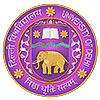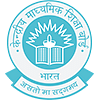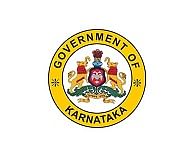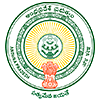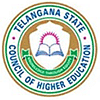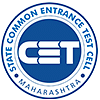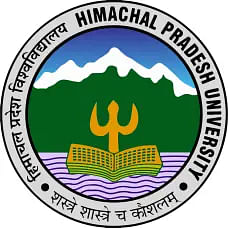
Table of Contents
DU B.Ed 2025 syllabus includes important sections such as teaching aptitude, language, domain-subjects and general test. The syllabus provides a framework for students taking the CUET B.Ed 2025 entrance test.
The syllabus will help candidates to prepare for the exam in a structured way. It is essential for candidates to be aware of the entrance pattern and the question pattern in order to score well in DU B.Ed 2025.
DU B.Ed 2025 Syllabus: PDF Link
The DU B.Ed 2025 syllabus will be announced of the pgcuet.samarth.ac.in website. Once available candidates will be able to download the same, from the table below.
| Particulars | PDF Link |
| DU B.Ed 2025 Syllabus | To be Updated |
DU B.Ed 2025 Syllabus: Section-wise Details
Candidates appearing for the BU B.Ed 2025 exam must note that, out of 4 sections in the syllabus, authorities are yet to release official details of the Teaching aptitude syllabus.
DU B.Ed Teaching Aptitude Syllabus 2025
NTA will notify through it website, once the Teaching Aptitude section of the DU B.Ed 2025 syllabus is available.
DU B.Ed General Test Syllabus 2025
The general test section of the DU B.Ed syllabus 2025 is mentioned below.
- General Knowledge
- Logical and Analytical Reasoning
- Current Affairs
- General Mental Ability
- Reasoning (Quantitative, Arithmetic, Algebra, Statistics, Geometry, Mensuration)
- Numerical Ability
DU B.Ed Maths Syllabus 2025
- Relations and Functions - Relations and Functions, Inverse Trigonometric Functions
- Algebra - Matrices, Determinants
- Calculus - Continuity and Differentiability, Applications of Derivatives, Integrals, Applications of the Integrals, Differential Equations.
- Vectors and Three-Dimensional Geometry
- Linear Programming
- Probability
CUET B.Ed 2025 Syllabus: Science
The Science DU B.Ed 2025 syllabus is available for Botany, Zoology, Physics, Home Science and more.
| Subject | Chapters |
| Botany | Phycology and Microbiology, Biomolecules and Cell Biology, Mycology and Phytopathology, Archegoniate, Anatomy and Angiosperms, Economic Botany, Genetics, Molecular Biology, Plant Ecology and Phytogeogra, Plant Semantics, Reproductive Biology of Angiosperms, Plant Physiology, Plant Metabolism, Plant Biotechnology |
| Zoology | Cell Biology, Biochemistry, Molecular Biology, Ecology, Evolution, Biodiversity & Environment Conservation, Immunology, Genetics, Bio techniques, Vertebrates and Invertebrates, Developmental Biology, Biostatistics, Animal Physiology, Recombinant DNA technology |
| Chemistry |
Physical Chemistry: Gaseous State, Liquid State, Ionic Equilibria, Solid State, Thermodynamics, Thermochemistry, Second Law, Third law of thermodynamics, Free Energy Functions, Partial molar quantities, Dilute solutions or Colligative Properties, Molecular Spectroscopy & Photochemistry, Chemical Kinetics, Catalysis, Surface chemistry, Phase Equilibria, Introduction to Quantum Chemistry, Conductance, Electrochemistry Inorganic Chemistry: Atomic Structure, Periodicity of Elements, Chemical Bonding, Metallic bonding and Weak chemical forces, Oxidation-Reduction and general principle of metallurgy, Chemistry of s and p Block Elements, Noble Gases, Inorganic Polymers, Coordination Chemistry, Transition Elements, Lanthanides and Actinides, Bioinorganic Chemistry, Organometallic Compounds Organic Chemistry: Basics of Organic Chemistry, Stereochemistry, Chemistry of Aliphatic Hydrocarbons, Carbon-Carbon sigma bonds, Carbon-Carbon pi-bonds, Cycloalkanes and Conformational Analysis, Aromatic Hydrocarbons, Chemistry of Halogenated Hydrocarbons, Alcohols, Phenols, Ethers and Epoxides, Carbonyl Compounds, Carboxylic Acids and their Derivatives, Sulphur containing compounds, Nitrogen Containing Functional Groups, Polynuclear Hydrocarbons, Heterocyclic Compounds, Alkaloids,Terpenes, Basic Principles of UV Spectroscopy, Basic principles of IR Spectroscopy, NMR (1 H and 13C, Basic principles Mass Spectrometry |
| Physics | Electrostatics, Current Electricity, Magnetic Effects of Current and Magnetism, Electromagnetic Induction and Alternating Currents, Electromagnetic Waves, Optics, Dual Nature of Radiation and Matter, Atoms and Nuclei, Electronic Devices |
| Home Science |
Work, livelihood and Career, Nutrition, Food Science and Technology, Human Development and Family Studies, Fabric and Apparel, Resource management, Communication and Extension |
| Computer Science | Computational Thinking and Programming, Computer Networks, Database Management |
| Environmental Science | Human Beings and Nature, Population and Conservation Ecology, Monitoring Pollution, Third World Development, Sustainable Agriculture, Environmental and Natural Resource Economics, International Relations and the Environment |
CUET B.Ed 2025 Syllabus: Social Science
The Social Science syllabus for DU B.Ed is mentioned in the table below.
| Subjects | Chapters |
| History | Ancient History of India (10000 BC to 1206 AD), Early Medieval India (750 AD- 1206 AD), Medieval History of India (1206-1707 AD), Modern History of India (1707 to 1947) |
| Political Science | Western Political Philosophy, Indian Political Thought, Political theory, International Relations, Indian Government and Politics, Comparative Government and Politics, Public Policies in India, General issues of contemporary relevance |
| Geography |
A) Physical Geography: Geomorphology, Climatology, Oceanography, Biogeography, Physical Geography of India B) Human Geography: Geographic Thought, Population Geography, Geography of Resources, Economic Geography, Human Geography of India C) Geographical Techniques: Cartography, Surveying Techniques, Statistical Techniques, Remote Sensing and GIS |
| Economics |
Micro Economics, Macro Economics, Money and Inflation, Consumption and Investment Function, Statistical Methods in Economics, Mathematical Methods in Economics, Indian Economy |
| Commerce |
Micro Economics, Currency and Banking, Essential of Management, Office Management, Accounting, Business Organization, Statistical Methods, Public Finance, Business Law, Cost Accounting, Company law and Secretarial Practice, Selling and Advertising, Business Mathematics, Insurance Law and Accounts, Income Tax Law and Accounts, Contemporary Audit, Indian Economic Structure, Marketing, Practice and Finance, Macro- Economics, Trade of India, Applied & Business Statistics, Law and Practice of Banking, Development Banking, Quantitative Economics |
CUET B.Ed 2025 Syllabus: Arts
The DU B.Ed 2025 syllabus for arts in mentioned below.
| Chapters | Topics | Context |
| Six Limbs of Indian Painting | Sadangas | |
| Fundamentals of Visual Arts | Elements | Point, line, colour, tone, texture and space |
| Principles | Unity, harmony, balance, rhythm, emphasis and proportion | |
| Drawing & Painting and materials | Abstraction and stylization, Foreshortening, perspective, eye level, fixed point of view, Vanishing point, ratio-proportion, sketching, drawing light and shade, still- life, land-scape, anatomy, vertical, horizontal, two and three dimensional, transparent and opaque Paper (Cartridge, handmade canvas and Hardboard Handmade, ect.), Pencil, water colour, acrylic colour, transparent | |
| Media of Composition | Collage, Mosaic, Painting, Mural, Fresco, BatikTie and Dye | |
| Sculpture | Relief and round sculpture, modelling with clay,terra-cotta, carving in wood, stone, bronze casting, plaster of Paris and metal welding | |
| Graphics | Linocut, relief printing, etching, Lithography, silkscreen printing | |
| Applied Art – Commercial Art | Book cover design and illustration, cartoon, poster, Advertisements, newspaper and magazine, animation and printing processes, photography, computer-graphic, hoarding and T.V, letterpress and offset printing |
DU B.Ed 2025 Syllabus: English
The DU B.Ed 2025 syllabus for English is available in the table below.
| Serial No. | Units |
| 1 | Reading Skills |
| 2 | Writing Skills and Grammar |
| 3 | Language through Literature |
Benefits of DU B.Ed 2025 Syllabus
The DU B.Ed 2025 syllabus is designed keeping in mind the skills and knowledge that will be developed through the course work, providing students with a robust learning experience. Here are some benefits of the BU BEd syllabus 2025.
- The course helps candidates with a learning experience aligned with their interests, knowlege and provides them with experiences.
- Students discover how the curriculum is designed to help them develop their skills, aiding in long term skill-development.
- Students are equipped with plenty of teaching methodologies, classroom management skills, assessment and evaluation methods.
- Additionaly, students gain a real-world experience in the field of teaching via internship opportunities and tutorials presented during their tenure.
